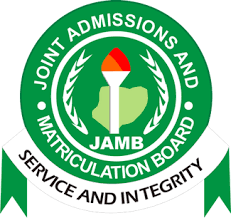As the Joint Admissions and Matriculation Board (JAMB) exam approaches, students preparing for the Economics section in 2025/2026 are keenly seeking reliable resources to enhance their preparation. The JAMB Economics syllabus serves as a roadmap, outlining key topics and areas of concentration that candidates should focus on to excel in the exam.
In this blog post, we will delve into the JAMB areas of concentration for Economics, provide guidance on how to effectively utilize these resources, and offer tips for achieving a high score.
Importance of Understanding the Syllabus
The JAMB Economics syllabus is an essential tool for exam preparation. It highlights the specific topics and concepts that will be covered in the exam, ensuring that students can focus their study efforts effectively. By understanding the syllabus, candidates can:
- Identify Key Topics: Focus on the most critical areas of Economics that are likely to be tested.
- Develop a Study Plan: Create a structured study plan that covers all necessary topics.
- Practice Effectively: Use past questions and recommended textbooks to practice and reinforce learning.
- Oxford Dictionary Adds 20 Nigerian Words, Including “Japa” “Agbero” and “Eba”
- JUPEB Past Questions and Answers FREE Download (PDF)
- JAMB Accredited CBT Centres for 2025 UTME/DE Registration in All States
JAMB Areas of Concentration for Economics 2025/2026
The JAMB Economics syllabus for 2025/2026 includes a wide range of topics. Here are the key areas of concentration:
- Economics as a Science
- Focuses on basic concepts such as wants, scarcity, choice, scale of preference, opportunity cost, rationality, production, distribution, and consumption.
- Candidates should understand the scientific nature of economics and its relevance to real-life situations.
- Economic Systems
- Covers the types and characteristics of free enterprise, centrally planned, and mixed economies.
- Candidates should be able to compare and contrast these systems, identifying their strengths and weaknesses.
- Economic Problems and Solutions
- Explores the economic problems of what, how, and for whom to produce, as well as the efficiency of resource use.
- Candidates should be able to apply the Production Possibility Frontier (PPF) to solve economic problems.
- Market and Price System
- Includes the concepts of market and price, functions of the price system, equilibrium price and quantity in product and factor markets, and the effects of price legislation.
- Candidates should be able to explain how markets operate and how prices are determined.
- National Income
- Covers the concepts of Gross National Product (GNP), Gross Domestic Product (GDP), Net National Income (NNI), and Net National Product (NNP).
- Candidates should understand how national income is measured and its limitations.
- Money and Banking
- Focuses on the types, characteristics, and functions of money, demand for and supply of money, the Quantity Theory of Money, inflation, and deflation.
- Candidates should be able to analyze the causes and effects of inflation and deflation.
- International Trade
- Explores the gains from trade, comparative advantage, terms of trade, balance of payments, and exchange rates.
- Candidates should understand the principles of international trade and its impact on national economies.
- Economic Growth and Development
- Includes indicators of growth and development, factors affecting growth and development, and problems of development in Nigeria.
- Candidates should be able to distinguish between economic growth and development and assess the challenges facing developing countries like Nigeria.
- JAMB Areas of Concentration for Physics 2025/2026: Comprehensive Guide
- Original JAMB Physics Syllabus 2025/2026 PDF Download
Detailed Topics in the Syllabus
Here are some of the detailed topics covered in the JAMB Economics syllabus:
- Basic Concepts: Wants, scarcity, choice, scale of preference, opportunity cost, rationality, production, distribution, and consumption.
- Economic Systems: Free enterprise, centrally planned, and mixed economies.
- Market and Price System: Equilibrium price and quantity, price legislation, and its effects.
- National Income: GNP, GDP, NNI, NNP, and their measurements.
- Money and Banking: Types of money, demand and supply of money, inflation, and deflation.
- International Trade: Comparative advantage, terms of trade, balance of payments.
- Economic Growth and Development: Indicators of growth and development, factors affecting growth and development.
Tips for Achieving a High Score
To excel in the JAMB Economics exam, follow these practical tips:
- Use the Approved Syllabus: Ensure that your study plan aligns with the JAMB Economics syllabus to cover all necessary topics.
- Practice Past Questions: Regular practice with past questions helps in identifying recurring themes and patterns, improving time management, and building confidence.
- Understand the Exam Format: Familiarize yourself with the exam format, including the types of questions and the time allocated for each section.
- Recommended Textbooks: Use JAMB-recommended textbooks for comprehensive coverage of the syllabus.
- Join Study Groups: Participate in study groups or online forums to stay updated with the latest exam trends and strategies.
Conclusion
Preparing for the JAMB Economics exam requires a strategic approach, focusing on the key areas of concentration outlined in the syllabus. By understanding these topics, practicing effectively, and staying informed about the exam format, candidates can significantly enhance their chances of success.
Remember to stay focused, manage your time wisely, and utilize all available resources to achieve a high score in Economics.
Additional Resources:
- JAMB Economics Syllabus 2025/2026 PDF: Download the official syllabus to guide your study plan.
- JAMB Recommended Textbooks for Economics: Use these textbooks for comprehensive coverage of the syllabus.
- Past Questions and Practice Tests: Practice with past questions to improve your performance and build confidence.

